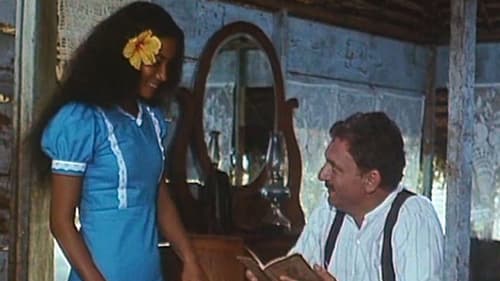
Through Maori poet, filmmaker and activist Henri Hiro's life and work, Tahitians struggle to safeguard their own identity in the face of colonial invasion and nuclear tests in Mururoa.

Dialogue
The film tells the story of a young man (eldest son of a chief) and a young woman (daughter of another chief) who fall in love with each other.

Victor Segalen
The film is a free adaptation of a travelogue by Victor Segalen. In 1905, the writer described in “Les immémoriaux” the passage from the Maori world to another evangelized world. Marc Giannesine in an article published in Le Monde in 1987 wrote: “But beware, the adventure according to Segalen is a total change of life, of skin. For him, it is not a question of superficially aping the customs of the Maori, but of stripping his own culture in mind to better feel that of others. It is exoticism in the purest sense of the term, as Baudelaire understood it, an art of correspondences between the most diverse things. Henri Hiro, emblematic figure in the Pacific, of the defense of his culture, goes back in time for us by following the text of Segalen.

Director
Filmed between 1980 and 1983, Tärava is considered the founding work of documentary cinema in Tahitian and embodies the link between the Polynesian and his ancestral land. To the rhythm of songs, hïmene tärava, the film takes us to discover our mountains and our valleys, and the story of the birth of the tärava. Filmed by Henri Hiro, Angelo Oliver and Harris Aunoa, Tärava looks back on the period during which missionaries settled in Polynesia. They never ceased to prohibit traditional songs and dances because they expressed in their eyes the perversions and lust of these pagan peoples. Drums and flutes, the basic instruments of Polynesian music, were thus banned. Only choral singing was permitted.

Director
In 1939 a French policeman (Jacques Martin) is forgotten on a Polynesian island, during an administrative tour. When war broke out, he knew nothing about it and it was only when a German ship called that he learned of the gravity of the events. On the tone of comedy, this drama describes the relationship between this ex-policeman still imbued with administrative stupidity and the naive but joyful population of the island. The comedy prevails over the drama and the gendarme will not take long to acquire the joie de vivre of the natives.

Writer
“Ariipaea-Vahine” is originally a poem by Henri Hiro. This poem will become a play performed several times at the Grand Théâtre and in Moorea by the Pupu Arioi. In 1978, the Matarau cinema unit was created at the Maison des Jeunes et de la Culture. The first film in this department will be an adaptation of the play. In his book "Autonomous Tahiti", Philippe Mazelier defines the piece as follows: "The theme is classic, the parabola transparent: as long as it was faithful to ancestral convictions, Ariipaea passed from the world of men to the world of gods, and Maohi culture was alive. When she converted, the gods stopped speaking to her, and Tahitian culture died. To revive it implies for Henri Hiro to fight Western culture. He calls for a return to basics against the consumer society while the latter, at the same time, is working twice as hard.

Director
“Ariipaea-Vahine” is originally a poem by Henri Hiro. This poem will become a play performed several times at the Grand Théâtre and in Moorea by the Pupu Arioi. In 1978, the Matarau cinema unit was created at the Maison des Jeunes et de la Culture. The first film in this department will be an adaptation of the play. In his book "Autonomous Tahiti", Philippe Mazelier defines the piece as follows: "The theme is classic, the parabola transparent: as long as it was faithful to ancestral convictions, Ariipaea passed from the world of men to the world of gods, and Maohi culture was alive. When she converted, the gods stopped speaking to her, and Tahitian culture died. To revive it implies for Henri Hiro to fight Western culture. He calls for a return to basics against the consumer society while the latter, at the same time, is working twice as hard.

“Ariipaea-Vahine” is originally a poem by Henri Hiro. This poem will become a play performed several times at the Grand Théâtre and in Moorea by the Pupu Arioi. In 1978, the Matarau cinema unit was created at the Maison des Jeunes et de la Culture. The first film in this department will be an adaptation of the play. In his book "Autonomous Tahiti", Philippe Mazelier defines the piece as follows: "The theme is classic, the parabola transparent: as long as it was faithful to ancestral convictions, Ariipaea passed from the world of men to the world of gods, and Maohi culture was alive. When she converted, the gods stopped speaking to her, and Tahitian culture died. To revive it implies for Henri Hiro to fight Western culture. He calls for a return to basics against the consumer society while the latter, at the same time, is working twice as hard.







